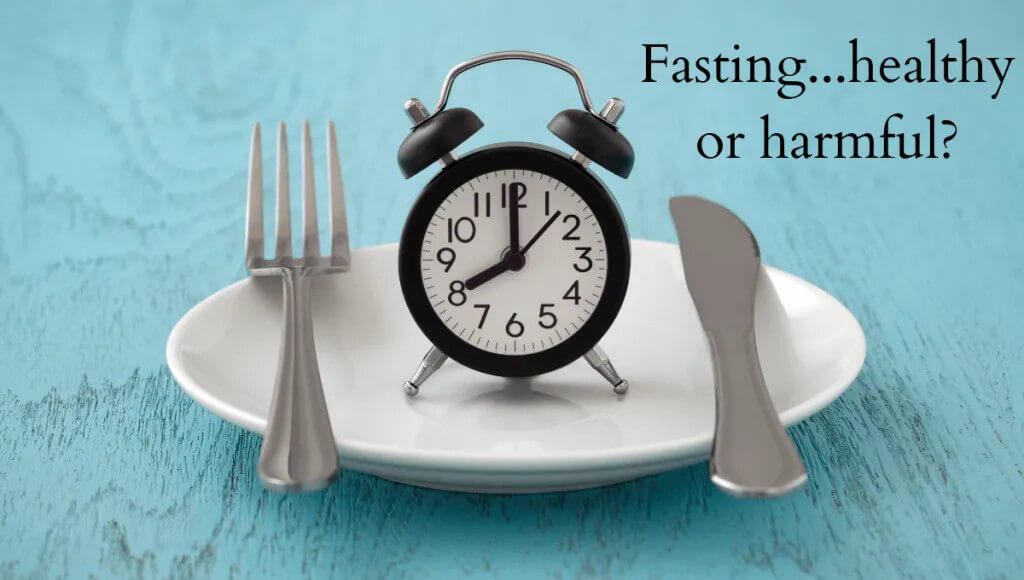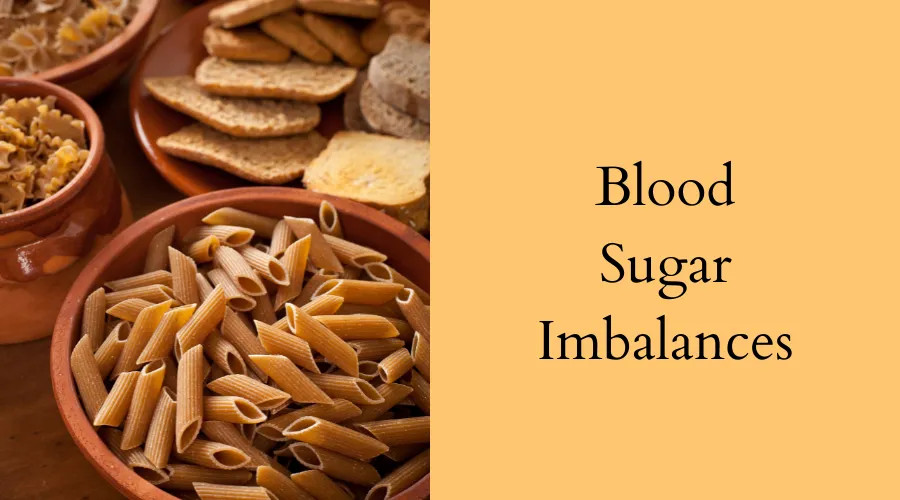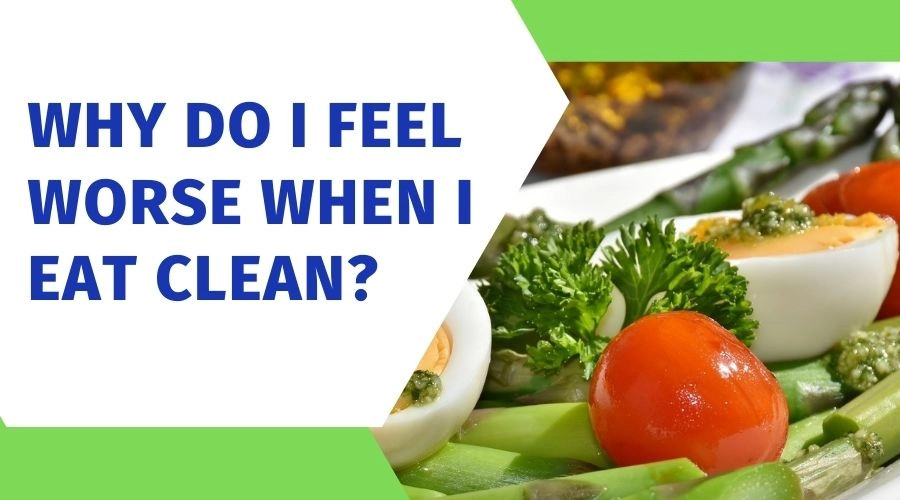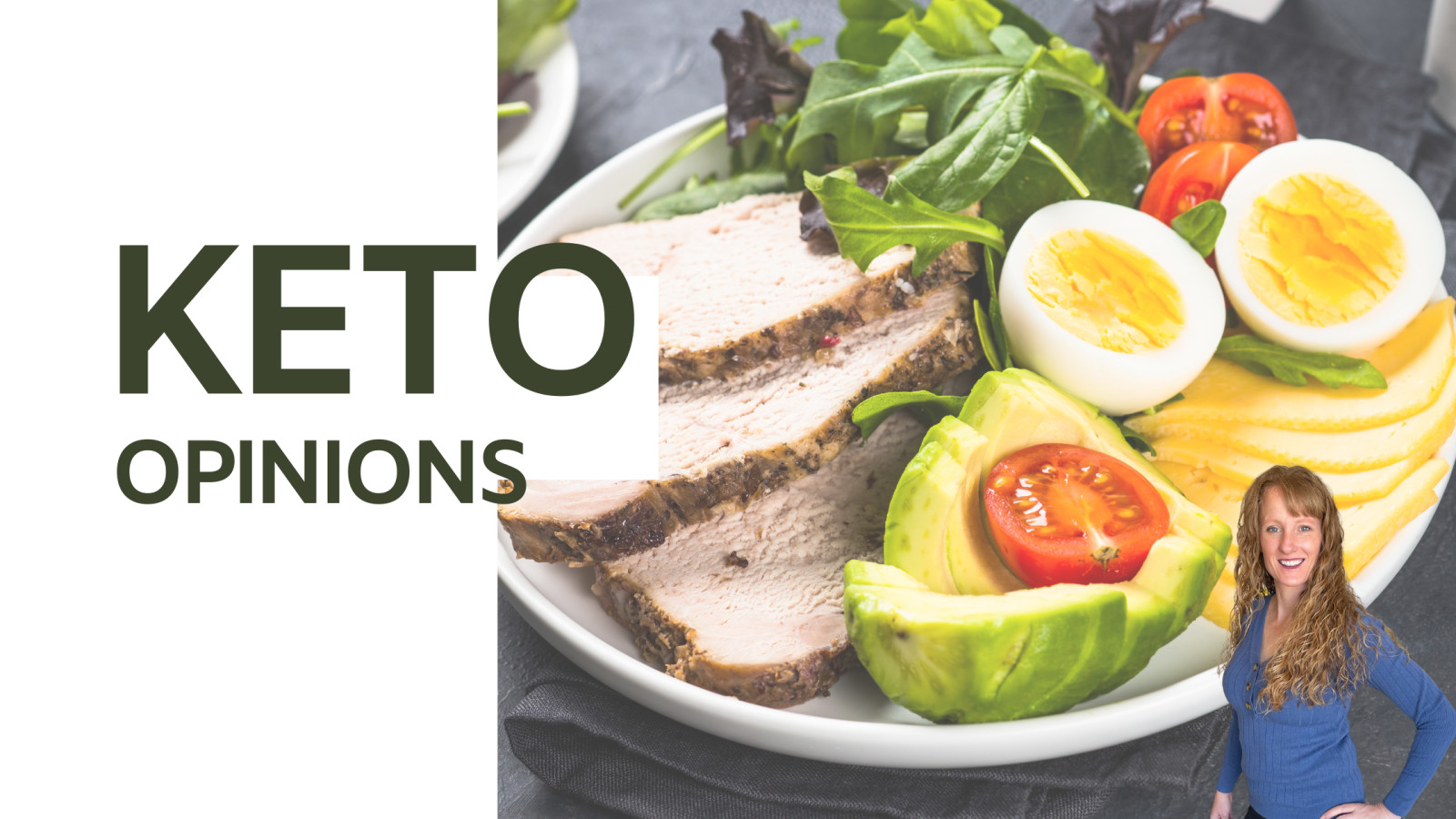
Is Fasting Healthy?
Today, we are talking about fasting. We’re going to talk about what it is, what it is not, bust some myths, discuss some benefits and risks, who should NOT fast, who could benefit from fasting…all the things! Let’s dive in.
I’d love to hear from you on this topic as well – have you tried intermittent fasting or time restricted eating? Have you intentionally fasted for longer than 1 day (outside of when you’re sick and just don’t want to eat)? Send me a message on Facebook or Instagram or shoot me an email and let me know what your experience has been.
What is fasting?
For those who are new to the concept or who may have heard its dangerous…let’s clear up the definition. Fasting is NOT the same as starvation. Fasting is the voluntary abstinence from food. This can be done for health, spirituality, religion or many other reasons and has been done throughout history for a variety of reasons. Fasting can be started and stopped at any time – again because it’s voluntary. Starvation is the involuntary absence of food in the diet. This is not intentional or desired. I love the distinction by Dr Jason Fung – the difference between fasting and starvation is akin to running for recreation versus running away from a tiger. They’re completely different!
Fasting can be done for a few hours to several days. In fact, all of us have some level of fasting daily – unless you’re attached to an IV or some outside source pumping food into you or you’re eating 24 hours a day – because we aren’t usually eating during sleep. So, we’re in a fasted state while sleeping. Some of us extend that fasted state for several hours beyond sleep. For simplicity sake, think of your fast beginning when you finish the last bite of food in a day (or the last calories you take in). The fast continues until you take in calories the next day. For example, if you finish dinner at 6pm and don’t take in any calories later in the evening, then you have breakfast at 8am the next day, you were in a fasted state for 14 hours. For someone who routinely doesn’t eat breakfast (which by the way is NOT a rule you must follow to be healthy), this fasted state might be extended to noon or so which would be an 18 hours in a fasted state. Pretty simple, right?
Myths and misconceptions…
First, I’ve already mentioned that breakfast is not a required meal to be healthy. Many people simply aren’t hungry or don’t feel well if they eat early in the day. Others find that their workouts are stronger when they workout before eating. And still others do best when they eat early in the day or eat the biggest meals early in the day. We’re all different. There are NO rules around when you must eat your meals or even how many meals you eat. What your unique schedule looks like is determined by your lifestyle, activity level, genetics, preferences, social life, medications, and so many other factors that are unique to you.
Second, you’ve likely been told to eat smaller, more frequent meals throughout the day. For the vast majority of people this practice isn’t serving you. It’s being propagated by the food industry, funneled through medical and dietitian schools, to increase the snack market. It’s not about your health. The food industry leaders know that you’re not likely to cook and prepare 5-6 different meals and snacks from scratch each day, so if you need to eat that often, you’ll likely buy bars, crackers, snack packs, shakes, and other pre-packaged convenience foods. Even if you were to make all of your food from scratch, this still isn’t boosting your metabolism.
What frequent eating is doing is causing frequent insulin spikes and not allowing those levels to ever return to baseline. When insulin is elevated, your body cannot use body fat for fuel. It can only burn what you’re taking in each day. It’s likely you’re taking in more than your immediate needs dictate, so this increases the likelihood that you’ll store some of the food as fat. So, this reduces fat burning and increases fat storage. Likely not the direction you want to be going, right?
Third, opponents of fasting will say that fasting is just a veiled attempt to reduce calories, and in actuality is really no different that simply cutting back on what you eat. This one might be true for some people…but there’s more to the story. Fasting can help regulate the appetite, so people do often say they’re less hungry and do therefore take in less. This is really helpful for people who tend to overeat. This can bring their calories down, but most often to the level they should be at (not less). Studies have been done looking at fasting versus not fasting, when both groups are fed the exact same foods and calories, the fasting groups tend to fare better in weight loss, blood pressure improvements, blood sugar response, insulin levels, abdominal fat mass, and even in mood regulation.
Fasting Protocols
There are different types of fasting protocols that vary from short duration fasts to longer fasts over many days.
Time restricted eating, or TRE, is a consistent schedule of fasting done daily. This is often described as a ratio between the number of hours fasted and the number of hours during which all food is consumed. 16:8, 18:6, etc. This would include the schedule we discussed earlier where someone skips breakfast and is therefore in a fasted state for 18 hours from 6pm one day through noon the next day. This would be an example of 18:6.
Intermittent fasting, or IF, by contrast is intermittent. This would usually describe an eating pattern that isn’t the same every day, but rather has longer fasting periods or entire days that are fasted throughout a given week. This could include schedules like a 5:2 where food is consumed on a normal 3 meal a day schedule 5 days a week, then 2 days are entirely fasted. This could also be an alternating schedule of lunch and dinner one day, followed by one meal the next day (either lunch or dinner). Each day is different, rather than the same routine daily.
Extended fasting would include fasting for longer than 24 hours. This could be 48 hours, 72 hours, or even up to 5 days. Generally, it’s not recommended for most people to go longer than 72 hours without medical supervision. I recommend you work with someone trained in fasting for your first fast longer than 24 hours.
What are the benefits and risks associated with fasting?
Let’s talk about the benefits first…and there are many! Some highlights are fasting has been shown to boost mental clarity, concentration, creativity, and overall brain function, improves weight and body fat loss, regulates appetite, reduces blood sugar levels to a healthier range, improves insulin sensitivity and lowers insulin levels, increases energy and interest in being active, improves fat burning for energy (and fat loss), lowers levels of cholesterol in the blood, restores leptin sensitivity, and decreases inflammation. The body uses the time when fasted to repair damaged and worn out cell membranes, tissues, and organelles. This is also a great time for your body to detoxify, kill off underlying infections, and boost your overall immune system. Fasting is also easy and can be implemented relatively simply by most people. And it’s free! This not only doesn’t cost you anything, but can end up saving you money by not needing all those snacks!
What about risks and who should not fast? When done properly, fasting has very little risk. The risks come in when it’s not done properly. Generally this comes from fasting too long, fasting while taking certain medications, fasting with certain medical conditions, fasting while pregnant or breastfeeding, fasting while malnourished or underweight, or fasting through signs that it’s time to break the fast.
I would never advise anyone to jump into a multi-day fast right off the bat. I also wouldn’t recommend starting any extended fasting while consuming poor food choices. It’s best to clean up your diet first, then slowly increase the fasting window.
Fasting and nearly every dietary strategy should not be taken on when you are pregnant or breastfeeding, unless advised by a medical doctor for a specific health reason – this is both for the sake of the mother and the baby. Those are times to help the baby grow – enjoy it and focus on that priority.
Certain medications must be taken with food or need to be monitored and adjusted as your health changes. This includes medications for blood pressure, thyroid, blood sugar, mental health, and many more. Be sure to discuss fasting with your prescribing physician to ensure rapid changes can be made if necessary.
Fasting does require that your body has adequate stored fuel available when food is not coming in. If you’re currently malnourished or underweight (very low body fat) you should not fast as you will only be able to burn lean tissue for fuel. Losing lean tissue comes as a serious detriment to your overall wellness.
And lastly, you should never white-knuckle your way through a fast. If at any point you don’t feel well, get shaky, dizzy, tired, or weak – it’s time to break the fast with food. Start slowly with some protein and healthy fats. You can always fast another day. Don’t push it!
Summary
Fasting is an incredible healing tactic that when applied correctly, can provide great benefit for conditions like diabetes, autoimmune conditions, hypertension, mental health disorders, low energy/fatigue, some cancers, insulin resistance, hormone imbalances, overweight/obesity, frequent illnesses, inflammatory conditions, and so many others. Please use caution to ensure you’re applying these methods correctly and safely. I highly recommend you work with a professional at the beginning of your fasting journey to ensure you’re applying the techniques properly and safely and with your goals in mind.
This is just one of many simple strategies I use with my clients to repair metabolism and gut health. If you’d like to learn more about fasting or other holistic health strategies, schedule a free call with me to get your questions answered! Until the next, be well and vibrant!





















0 Comments